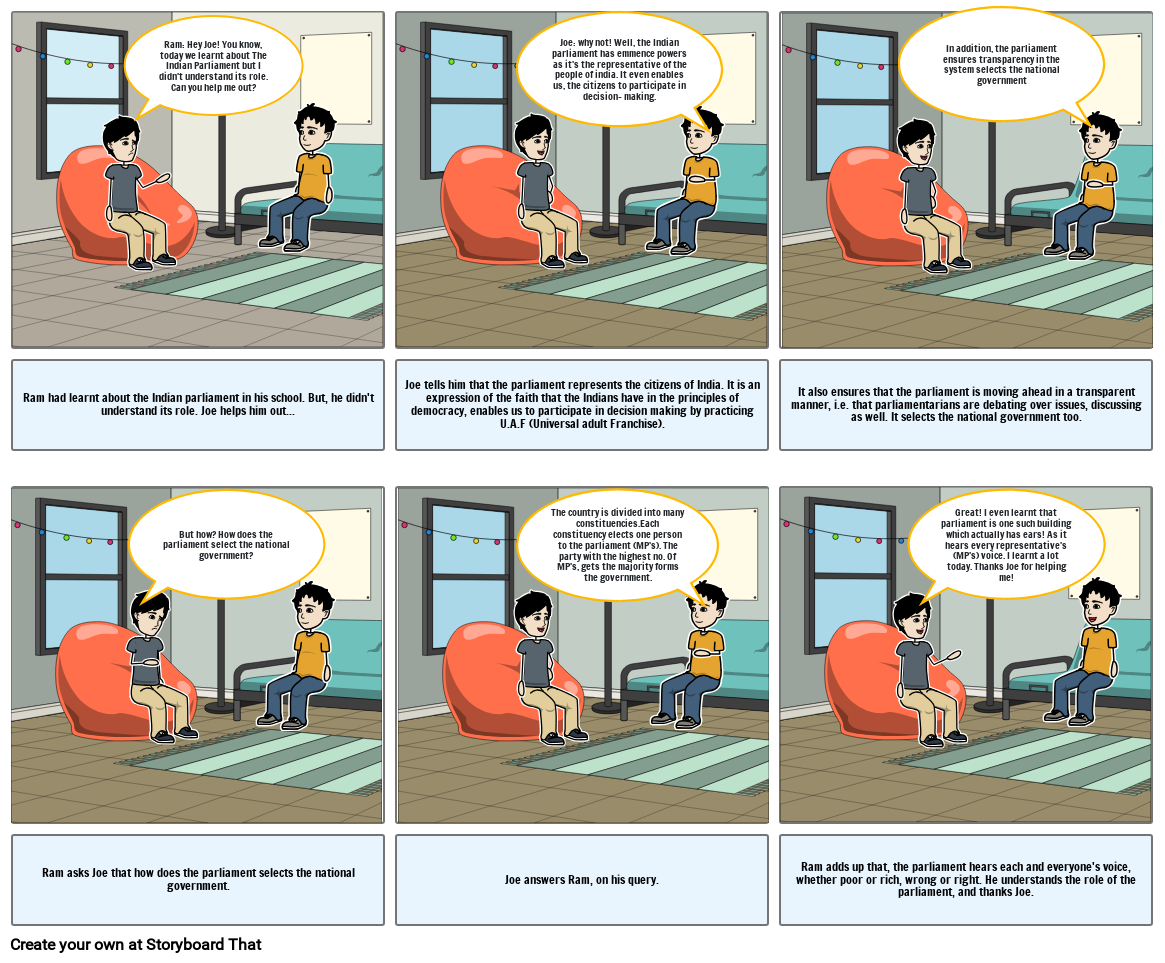Untitled Storyboard

Süžeeskeem Tekst
- Libisema: 1
- Ram: Hey Joe! You know, today we learnt about The Indian Parliament but I didn't understand its role. Can you help me out?
- Ram had learnt about the Indian parliament in his school. But, he didn't understand its role. Joe helps him out...
- Libisema: 2
- Joe tells him that the parliament represents the citizens of India. It is an expression of the faith that the Indians have in the principles of democracy, enables us to participate in decision making by practicing U.A.F (Universal adult Franchise).
- Libisema: 3
- It also ensures that the parliament is moving ahead in a transparent manner, i.e. that parliamentarians are debating over issues, discussing as well. It selects the national government too.
- Libisema: 4
- But how? How does the parliament select the national government?
- Ram asks Joe that how does the parliament selects the national government.
- Libisema: 5
- Joe answers Ram, on his query.
- Libisema: 6
- Great! I even learnt that parliament is one such building which actually has ears! As it hears every representative's (MP's) voice. I learnt a lot today. Thanks Joe for helping me!
- Ram adds up that, the parliament hears each and everyone's voice, whether poor or rich, wrong or right. He understands the role of the parliament, and thanks Joe.
- Libisema: 0
- The country is divided into many constituencies.Each constituency elects one person to the parliament (MP's). The party with the highest no. Of MP's, gets the majority forms the government.
- In addition, it is the highest law making body of India, i.e., that it makes laws for the whole country. It also has the duty to select the National government.
- Joe: why not! Well, the Indian parliament has emmence powers as it's the representative of the people of india. It even enables us, the citizens to participate in decision- making.
- In addition, the parliament ensures transparency in the system selects the national government
Loodud üle 30 miljoni süžeeskeemi

